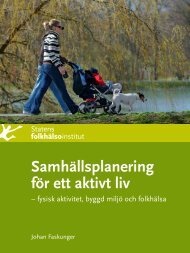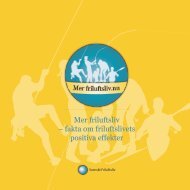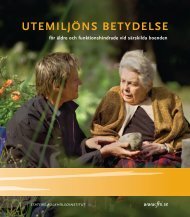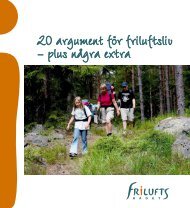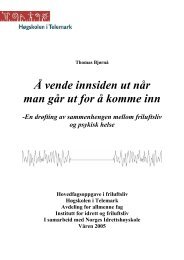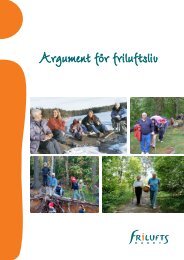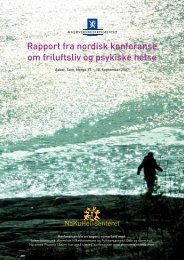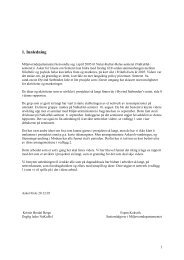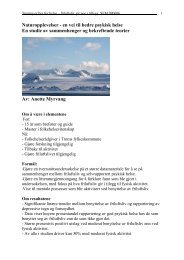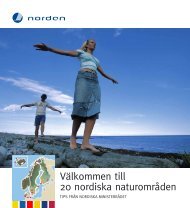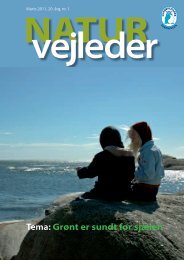Green Care: A Conceptual Framework - Frisk i naturen
Green Care: A Conceptual Framework - Frisk i naturen
Green Care: A Conceptual Framework - Frisk i naturen
Create successful ePaper yourself
Turn your PDF publications into a flip-book with our unique Google optimized e-Paper software.
Jung’s later contributions are more closely related to what we now call<br />
‘green care’. He described the phenomenon of the collective unconscious<br />
– which is a pre-verbal and primitive sense of connectedness – to others, to<br />
ancestors and to nature. Jung (1959) describes the lack of awareness about<br />
it in traditional science as follows:<br />
“For [experimental science] the workings of nature in her<br />
unrestricted wholeness are completely excluded. We need a<br />
method of enquiry which leaves Nature to answer out of her<br />
fullness.” (p. 846)<br />
This is an early harbinger of the biophilia hypothesis (see Section 6.2)<br />
which was first posited by E. O. Wilson (Wilson, 1984), and later expanded<br />
and developed by Stephen R. Kellert (Kellert, 1993). Lovelock’s Gaia<br />
is a similar theoretical construction, though his focus is to describe the<br />
connectedness with nature as a whole organism, and he does not do so<br />
with any consideration of the psychological, spiritual or physical of the<br />
experience of humans in this (Lovelock, 1979).<br />
Lionel Corbett a Californian post-Jungian psychiatrist, describes the<br />
transcendental nature of contact with nature (Corbett, 2006):<br />
“A further genre of numinous experience occurs to people<br />
who find the sacred within the natural world. Some traditional<br />
religionists were nature mystics, but today this sensibility is<br />
mostly found in the guise of political movements such as the<br />
environmentalists. What drives them however is a profound<br />
feeling for the numinosity of nature, so that to desecrate the<br />
land is tantamount to sacrilege. One can recognise such<br />
individuals when they have this type of experience:<br />
Hurrying to a class at the university, because I was late I had<br />
to cross an expanse of lawn. As I ran across the grass, I had<br />
the most amazing and horrible experience. I could feel that<br />
each blade of glass had a life force, that the ground had a life<br />
force, that everything was bound together in this wonderful<br />
dance. I could feel my feet crushing the blades of grass. I<br />
could hear the crunch, I could feel the pain the grass felt.<br />
From this experience of expanded consciousness and oneness<br />
– which came totally unbidden and unexpected at that moment<br />
– I realised that I was something more than this pocket of flesh<br />
and mind, wondering and searching.” (p. 63)<br />
89




